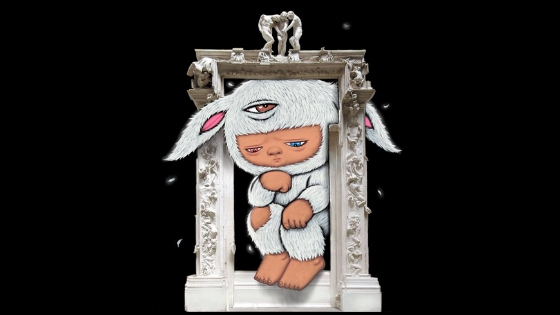A group of Thai rappers has touched a nerve with an impassioned and now-viral music video lobbing fiery rhymes at the ruling junta, as police mull filing charges against the lyricists.
The generals that toppled Thailand’s democratic government in 2014 have kept a tight lid on dissent but creative criticism through music and arts has been harder to control, even if its impact on political life has so far been minimal.
The song “Prathet Ku Mee” (Which is My Country), uploaded to YouTube on October 22, has racked up more than 6.4 million views and tens of thousands of comments since it went live on the platform, prompting authorities to take notice.
“It’s under consideration by investigators, and it will take a few days because it’s a sensitive issue,” Siriwat Deephor, the police spokesman for the Technology Crime Suppression Division, told AFP when asked whether they would file charges.
He also said the probe could decide whether those who share the video could be targeted.
“If this song violates the Computer Crime Act by uploading false information, those who share would be prosecuted and face the same punishment with those who uploaded it,” he said.
The act, which rights groups say has been used to crack down on online dissent, carries up to five years in prison.
Shot in black and white, the video features rappers from the Rap Against Dictatorship collective dishing out barbs about the military and blasting corruption, censorship and the lack of elections, which are tentatively scheduled for February after many delays.
“The country where you must choose to suck truth or a bullet,” one rapper says, wearing sunglasses with a bandana wrapped around his mouth.
Several lyrics appear to go after junta leader Prayut Chan-O-Cha.
“The country where the people do not read books, particularly the leader,” one verse says, a thinly veiled allusion to Prayut, who has boasted about being widely read.
Straying into historically sensitive areas, a dummy made to look as if it has been lynched and strung up comes in and out of shot, a reference to the massacre of dozens of student protesters and civilians by security forces on a Bangkok campus in 1976.
The only color appears on a guitar whose body is painted to resemble the Thai flag.
Journalists and an academic have joined the debate, with one person comparing it to the rapper Childish Gambino’s macabre “This is America” video about racism and violence earlier this year.
But not all are fans.
“Get out of this country if you don’t like it,” a Facebook user wrote.
Jacoboi, one of the group’s founders, told AFP this week that those who appear in the video are artists who want to talk about politics.
“They are the things we heard people say on social media and in real life,” he said.
“I’m not afraid of the authorities because I believe that nothing in this song has breached the law.”




